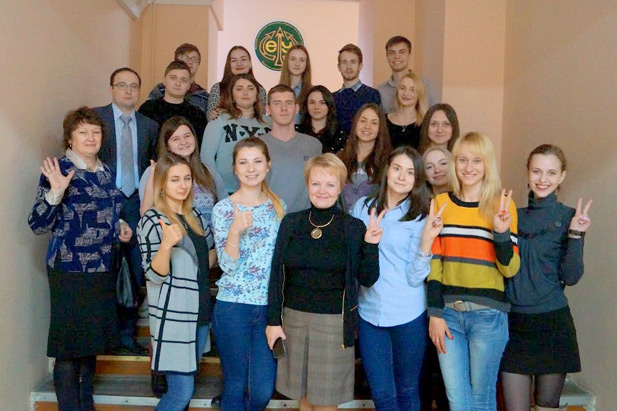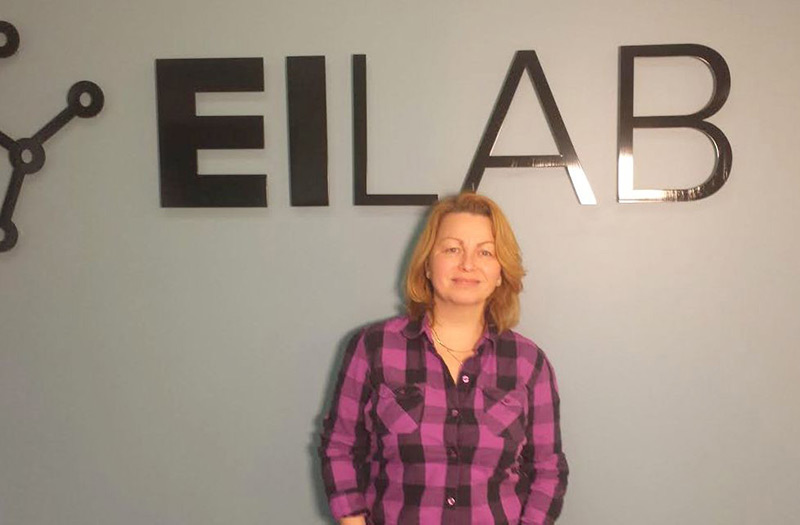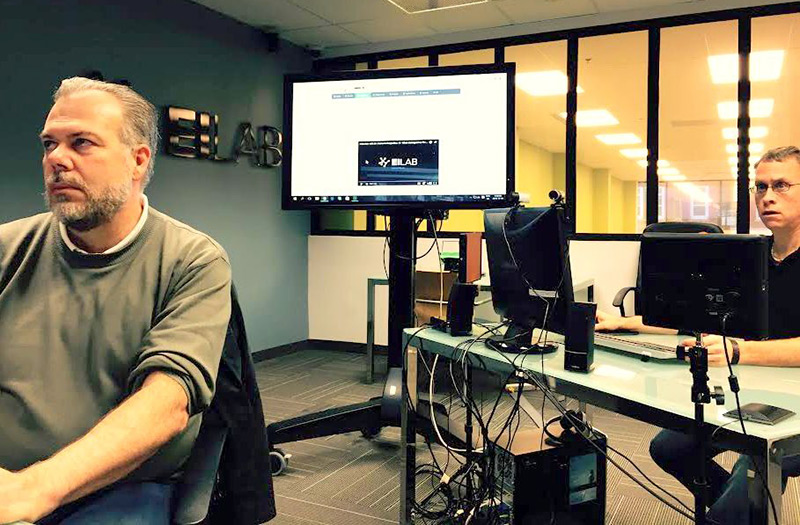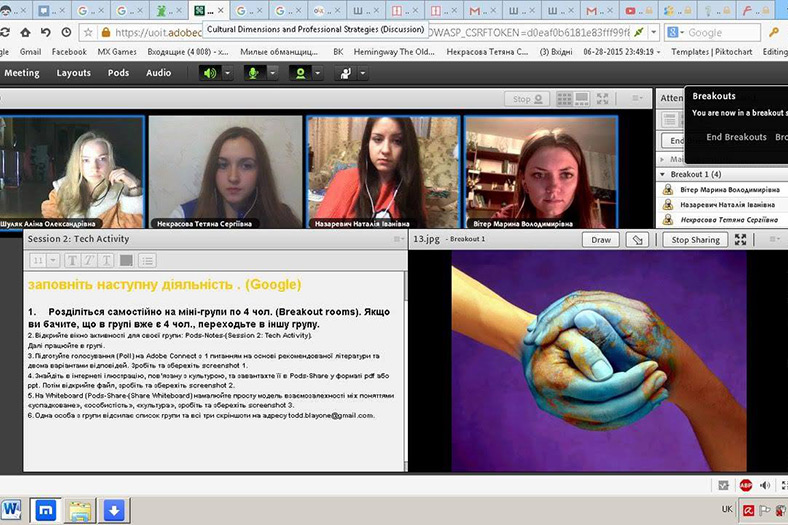UOIT Faculty of Education and visiting Ukrainian scholar piloting online learning project
Research partnership UOIT’s first formal association with a post-Soviet republic
April 25, 2016

Nearly a quarter-century has passed since Ukraine declared independence in the waning days of the former Soviet Union. But even after 25 years, Ukraine has faced tremendous challenges in the post-Soviet transition to a democratic state, particularly in the realm of education.
University education in Ukraine is evolving rapidly. There is great interest in Canadian models that leverage digital technologies, democratize communication between students and professors, and promote both rigorous inquiry and a diversity of perspectives. In short, Ukraine is eager to adapt the very best features of Canadian education.
The University of Ontario Institute of Technology’s (UOIT) Faculty of Education is supporting Ukraine’s transformation to democratized education through a research partnership with Ukraine’s Kyiv National Economic University (KNEU). The initiative involves an online pilot course offered to KNEU students that originates from Canada via the Faculty of Education’s Educational Informatics Laboratory (EILAB), a superbly equipped digital facility providing real-time observation of human-computer interaction.
“The UOIT-KNEU partnership offers outstanding opportunities to students and faculty researchers at both universities,” says Michael Owen, PhD, Vice-President, Research, Innovation and International, and Interim Dean, UOIT Faculty of Education. “As we engage with other universities and jointly apply progressive education models in diverse cultural contexts, Canadians gain the opportunity to see our ideas and ourselves in new ways. These new ways of seeing allow us to make our models stronger, more culturally adaptive and ultimately more valuable on a global stage.”
“Ukraine is making sweeping educational reforms and pursuing international partners for testing innovative teaching models aligned with the country’s democratic aspirations,” says Roland van Oostveen, PhD, EILAB Director, and Associate Professor, UOIT Faculty of Education. “Modern education requires preparing students to be critical thinkers and socially conscious, lifelong learners. The digital infrastructure in the EILAB is helping pioneer a new learning dynamic that reduces the psychological distance between instructors and students, and eliminates the teacher-student power structure of the past.”
Also working with Dr. van Oostveen in the EILAB is UOIT graduate researcher Todd Blayone, who lived in Kyiv, Ukraine for most of 2014 and 2015. While overseas he leveraged the digital connectivity of UOIT and the EILAB to engage in full-time studies, conduct research and function as a Teaching Assistant remotely.
“In a fully online learning model, students bring their own ideas to topics being discussed, and answers are explored in the collective,” says Blayone. “There is a diversity of learning outcomes, and in fact, every single ‘class’ could be entirely different where varying creative solutions are proposed by all participants. There are no right or wrong answers. Everyone is a learner and everyone is a teacher.”
Delivering the online pilot course Dimensions of Culture and Professional Strategy back to Ukraine from February to May 2016 is UOIT visiting scholar Olena Mykhailenko, PhD, Associate Professor of Business Economics at KNEU. She has experienced first-hand the tremendous challenges facing students in Ukraine’s educational system.
“Ukrainians know that Canadians are real friends: Canada was the first country to recognize our independence in 1991,” says Dr. Mykhailenko. “Canadians supported us during the most tragic days of the 2014 Maidan Revolution. Now, in a time of war, Canadian doctors and equipment are saving the lives of Ukrainians. It is natural for us to partner with friends to pursue educational transformation in Ukraine. UOIT offers innovative learning models and extensive technology expertise. KNEU considers UOIT a true international leader and friend.”
“Transformative online learning encourages participants to pursue new metaphors for collaborative learning,” adds Blayone. “My favourite metaphor comes from the recent Ukrainian experience. It begins with a tweet: ‘Let’s meet up at 22:30 under the Independence monument. Dress warm, bring umbrellas, tea, coffee, good mood and friends.’ From this casual invite, Ukrainian students came together. Dialogue led to purpose, purpose to action, and a democratic revolution was born.”
3 > 1Gallery
Media contact
Bryan Oliver
Communications and Marketing
Ontario Tech University
905.721.8668 ext. 6709
289.928.3653
bryan.oliver@uoit.ca






